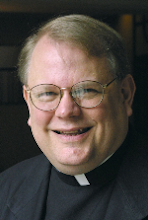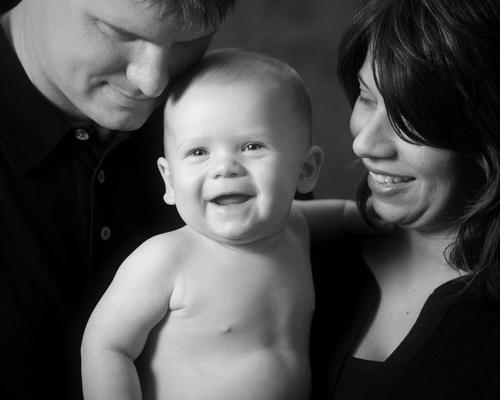
Twenty-First Sunday in Ordinary Time
“Hell”
I buried one of my dearest friends about ten years ago. She was one of the kindest people you would ever meet. A hairdresser by trade, after her retirement she spent the hours between doctors’ appointments visiting the sick and leading the rosary at the Nursing Home three times a week.
She was a good and faithful Catholic and loved the Lord and his Church and longed for the grace God gave her through the Sacraments. But, like many people, Loretta had an awful time believing in hell. “I just cant believe that God would send anyone to hell,” she used to lament. “Jesus died for us, and I cant believe he wouldn’t let everybody go to heaven.”
Well today’s Gospel presents a particular challenge to those who, like my dear departed friend, have a hard time believing in hell. For Jesus responds to the question, Will only a few people be saved? by a moral exhortation and a parable, both of which are instructive in the matter at hand.
First Jesus exhorts us “Strive to enter through the narrow gate.” The Greek verb which we translate as strive is agonizomai and its where we get our word agony from. Its used to refer to what a competitor in a sporting event does...giving it all he’s got to win. It implies sacrifice and suffering.
And in the context of the rest of these discourses in Luke, given by Jesus as he goes up to Jerusalem for the final time to offer his life on the cross, it clearly implies our participation in his passion, a loving and self-emptying unto death by joining our lives to the sacrifice of Christ, he who is the way, the truth, and the life.
But then comes the parable. It’s not unlike the one in Matthew about the wise and foolish bridesmaids. Here the Master of the House (a figure Jesus often used to describe himself) locks the door and there are a bunch of folks standing outside, knocking and yelling: ‘Lord, open the door for us.’ And he replies, just as in the story of the wise and foolish virgins: “I do not know you.”
They are undeterred, arguing their case that he should remember them because they ate and drank with him and he taught in their streets.” Notice, by the way, that they don’t say they learned from him, but that he happened to be teaching in the same town they were living in.
And he responds with the same words he uses for Satan when he was tempted in the desert at the beginning of his ministry: ?Depart from me, you evildoers!” At which these cast aways go off to the “wailing and grinding of teeth.”
Three points on Hell: The Ticket, the Destination, and the Alternative
The Ticket
First, notice (and this would please Loretta) that Christ does not buy the ticket for people to go to hell. People choose to go to hell and pay the fare with the way they live their lives. Angels with flaming swords do not drive sinners from the gates of heaven, rather it is the selfishness and sin of peoples’ lives that exile them from paradise. People place themselves on the outside of that locked door by the choices they make. They know about Jesus teaching in their streets, but they choose not to listen to his words.
The Destination
Second, the destination: hell is the other side of a locked door--eternal separation from God, eternal alienation from love, the eternal torment of being alone forever. Images of brim-stony fire and devils with horns, red suits and pointy tails, along with graphic depictions of grim torments and tortures have long occupied the imagination of artists and preachers. But the real torture, the real hell of hell, is that we can’t see God from there. And where there is no God there is no love. And where there is no love there is but selfishness, sin, death, and the never-ending dark frigidity of our alienation.
And how can we deny it? We sons and daughters of Adam and Eve...we children of a century in which more than a hundred million people were slaughtered in cruel wars and genocides, in which we first invented a weapon which could destroy the entire human race, and in which we legalized the abortion of babies and the euthanizing of old people. How can we deny there is a hell, chosen freely and justly deserved?
The Alternative
And finally, the alternative. Each of us have the ability at every moment of our lives to turn away from selfishness and sin, to reject Satan and all his works and all his empty promises, to pick up our cross and follow Christ through the narrow gate. The mercy of God is ever patient and like the father of the prodigal Son, Christ the merciful judge waits for us in that confessional to turn away from sin and give our lives back to him.
Conclusion
Such a little meditation on hell is not a bad tonic for the soul, and one which we modern men and women should perhaps partake of more often than we do. Saint Alphonsus Liguori used to recommend a daily meditation on the four last things: death, judgement, heaven, and hell.
It is a meditation which is so easy for me each time I look down from this sanctuary at a coffin lying before the Paschal Candle as mourners week and the smell of incense fills the Cathedral. For as I beg God’s mercy on the soul of the deceased, I cannot help but think of my own soul, and those last and most important things.
Do I really love or am I selfish? Do I believe the truth or do I spend my life foolishly on myself? Do I forgive those who hurt me or do I seek vengeance? Do I grab for all the stuff I can get or do I spend myself and my goods on those who need them more than me? Do I seek to keep pure the precious gifts God had given me, or do I cast his pearls before swine? Do I strive to be holy, or do I seek after my interests, my pleasures, and me?
Do I want to go to heaven or do I choose to go to hell?
Monsignor James P. Moroney
Rector







